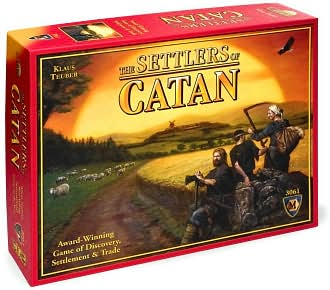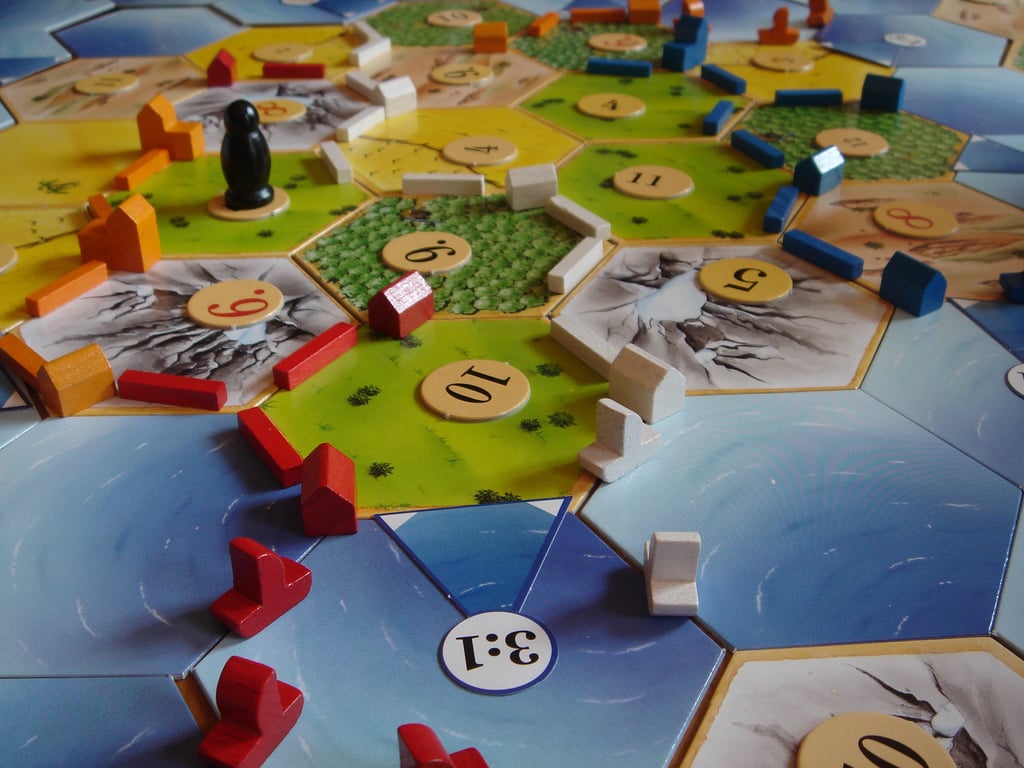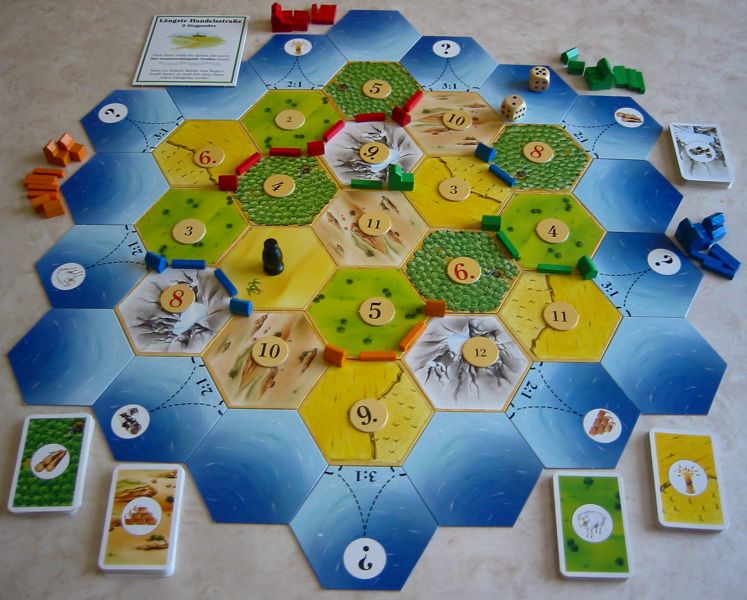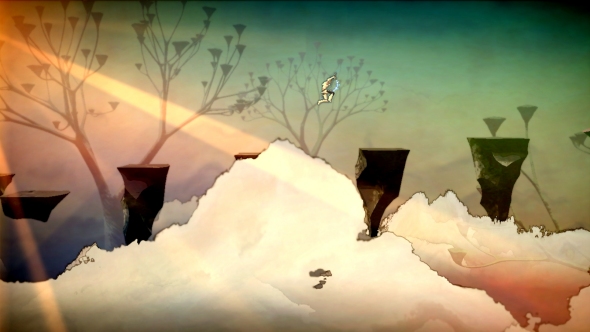Welcome to my weekly column designed to convert you, the board game heathen, into full-fledged converts in the Church of Cardboard (or Cult, which is probably more apropos). The first game on the list: Settlers of Catan.
Settlers was designed by Klaus Teuber way back in 1995 and is the one European game you may actually have heard of. You can find it for sale at Target, Wired magazine did a super-killer-awesome article about it, the Washington Post called it “the board game of our time,” and over 15 million copies of the game and its siblings have been sold around the world. It is, simply put, a worldwide phenomenon.

Your goal in Settlers is to expand your kingdom – comprised of your roads, settlements, and cities – faster than the other players. You do this by acquiring resources like brick and wheat, sometimes trading with other players to get precious commodities, and then using them to build more stuff. The first player to hit a certain number of points, determined by how long their road is, how big their army is, and how many cities they have, wins the game. That, however, is a fairly bland description of the game, and if you were to only go by that and the artwork on the front of the box (which is straight out of some hideous medieval agrarian nightmare of mediocrity), I wouldn’t blame you for never wanting to play a game of Settlers in your life.
But there’s so much more to it than that.
The best way to illustrate those differences is to provide some counter examples. Let’s take Monopoly, for example, which you’ll soon discover is my favorite board game whipping boy.
In Monopoly, the board is static. The same properties are always in the same place. Nothing changes unless you take to the board with a Sharpie and a will, and then you just have a permanently static board. With ugly black marks. In Settlers, however, the board is different every time. The island of Catan is made up of hexagons that represent the different commodities, and at the beginning of each game you randomly lay them out. Depending on how the resources end up being grouped together, you can have a very different game experience every time.

Next, you know how you spend so much dadgum time in Monopoly waiting while other players take their turn? In Settlers you’re constantly involved in the game. Even when it’s another player’s turn there are opportunities for you to collect resources and trade. You’re constantly engaged and there is very little yawn-wake-me-when-it’s-finally-my-turn-to-zzzzzzzzzzzz going on.
Monopoly is also a game where other players can get knocked out fairly early. Not only that, but it’s easy to tell who’s going to win after the first hour or so and (due to the randomness of the die rolls) it’s almost impossible to stop a runaway leader. In Settlers you can get get blocked if you play poorly, but for the most part each player is in the game up until the very end. No one is knocked out and the final standings are almost always close, usually within a single point. Monopoly has almost no tension about who’s going to win; a game of Settlers isn’t over until the fat thief sings.
In short, Settlers was designed to be dynamic, keep players engaged, and not force anyone away from the table early. It’s one of those games that after you’ve played it, everyone almost immediately says, “Let’s play another round.” So go pick it up at Target and get converted!




